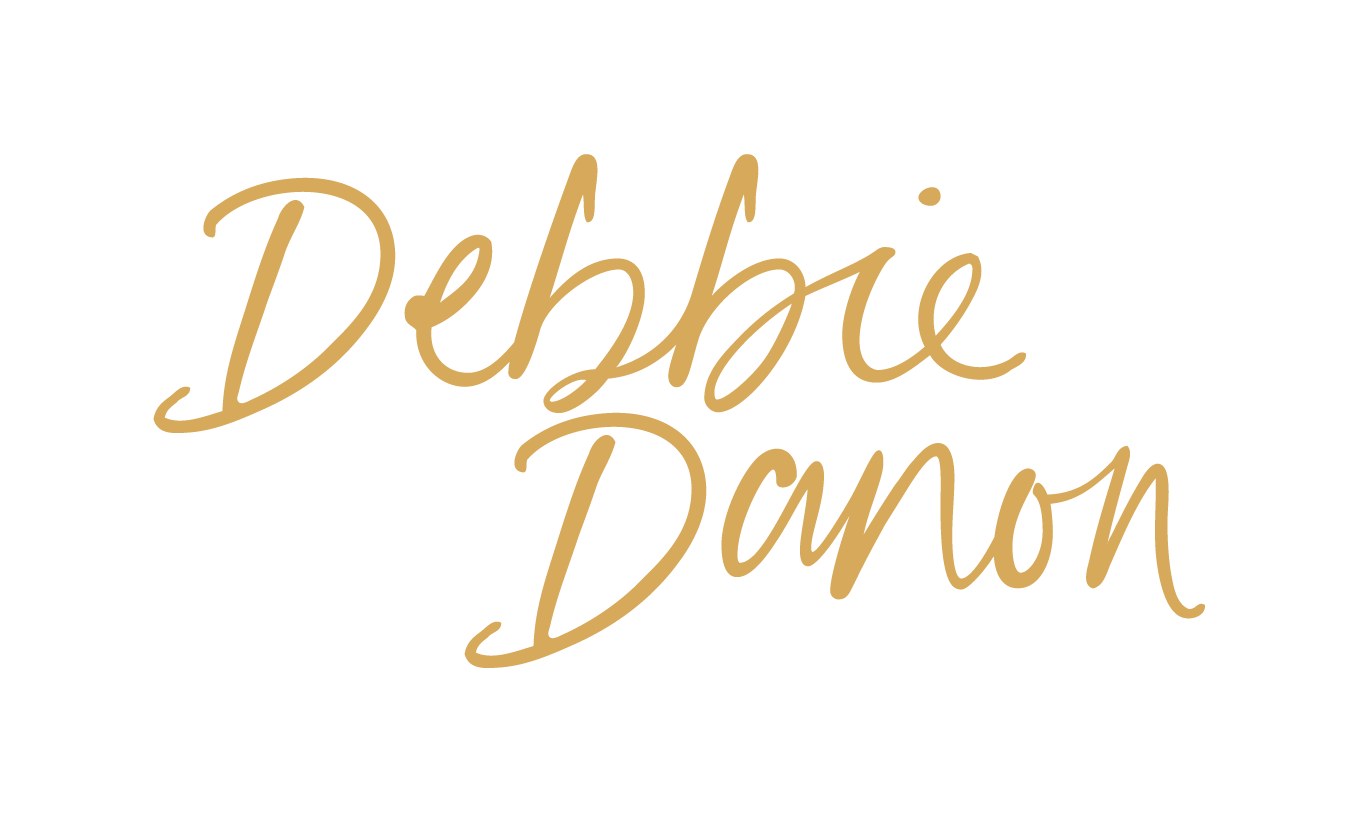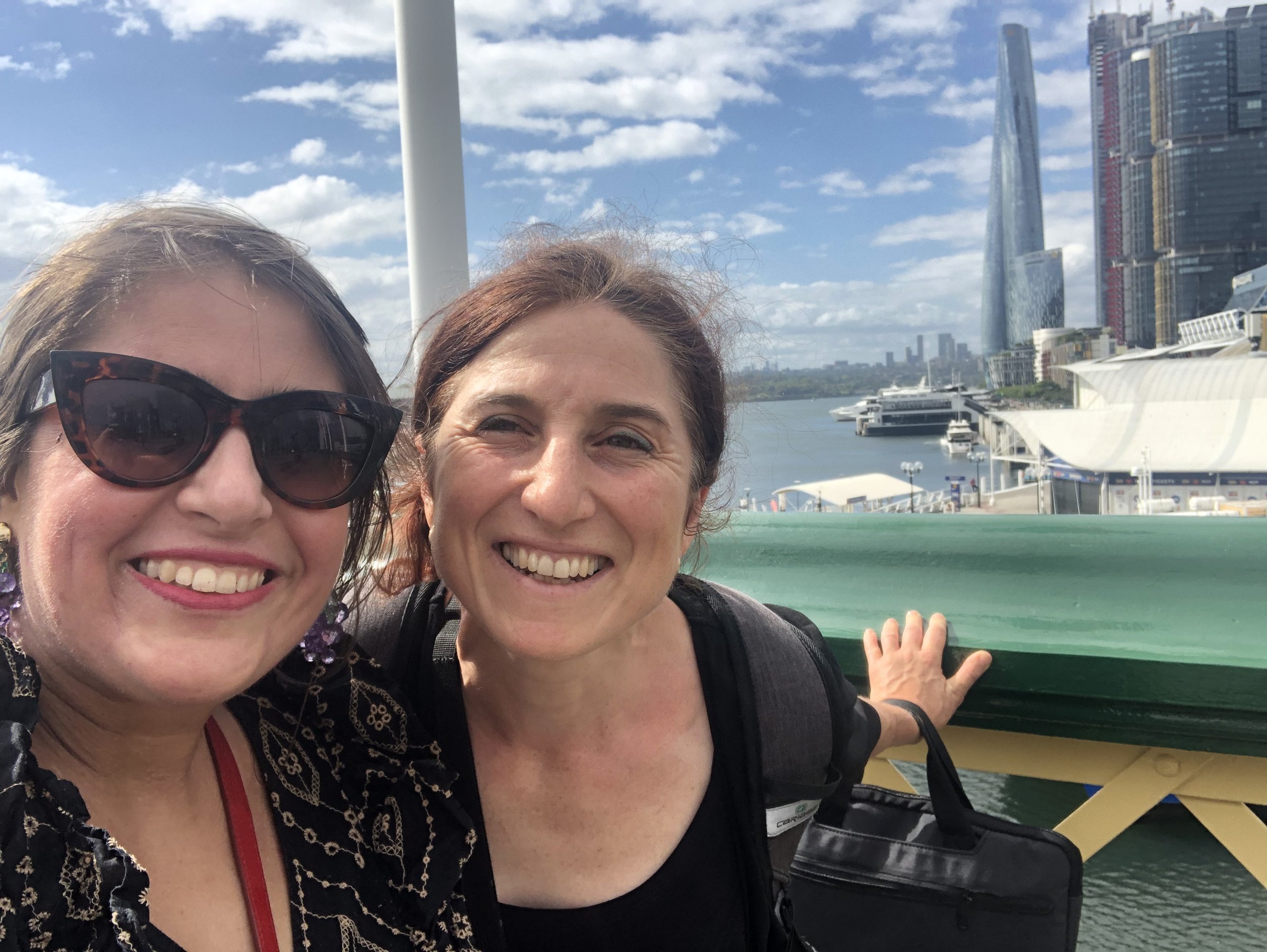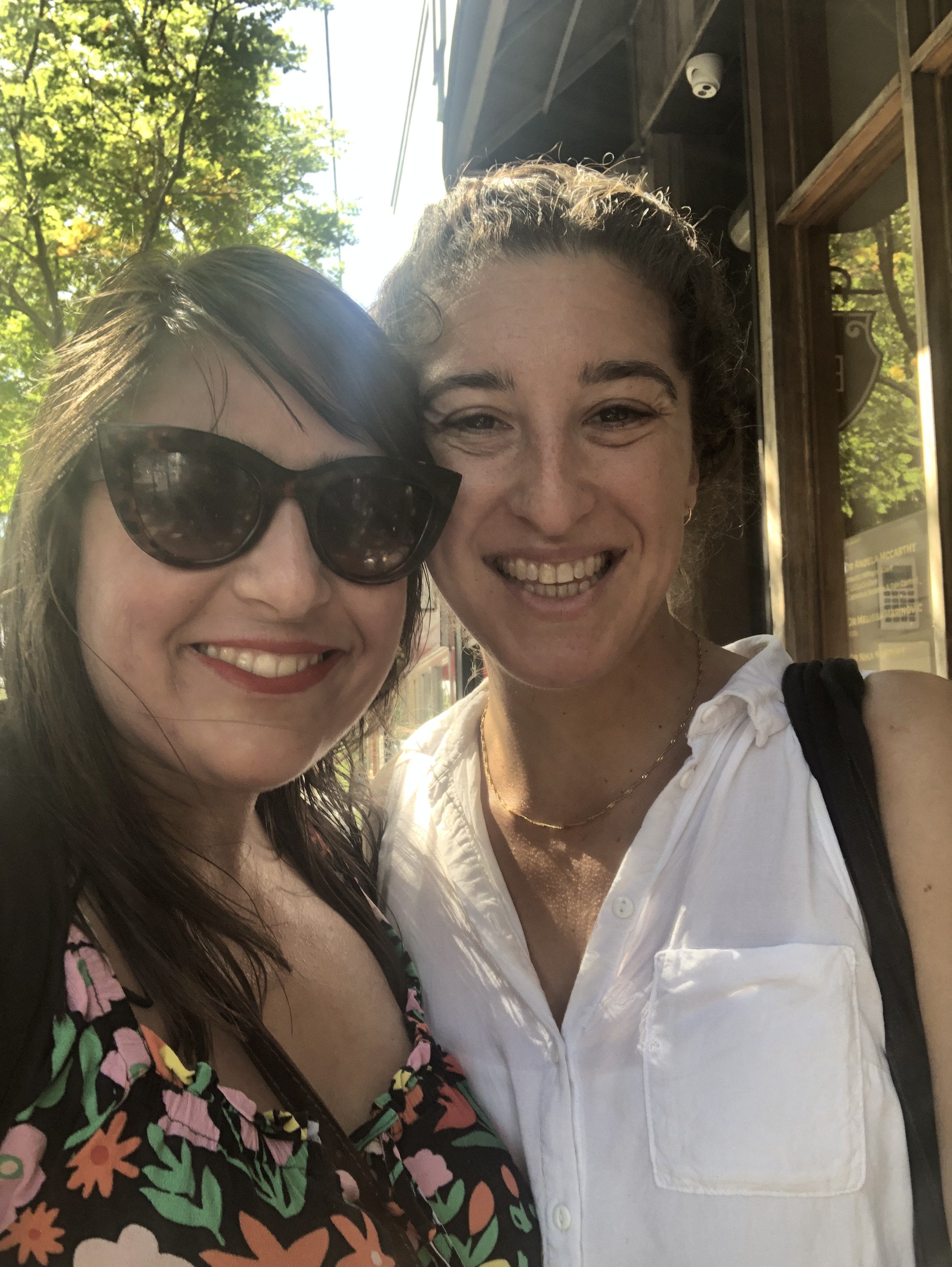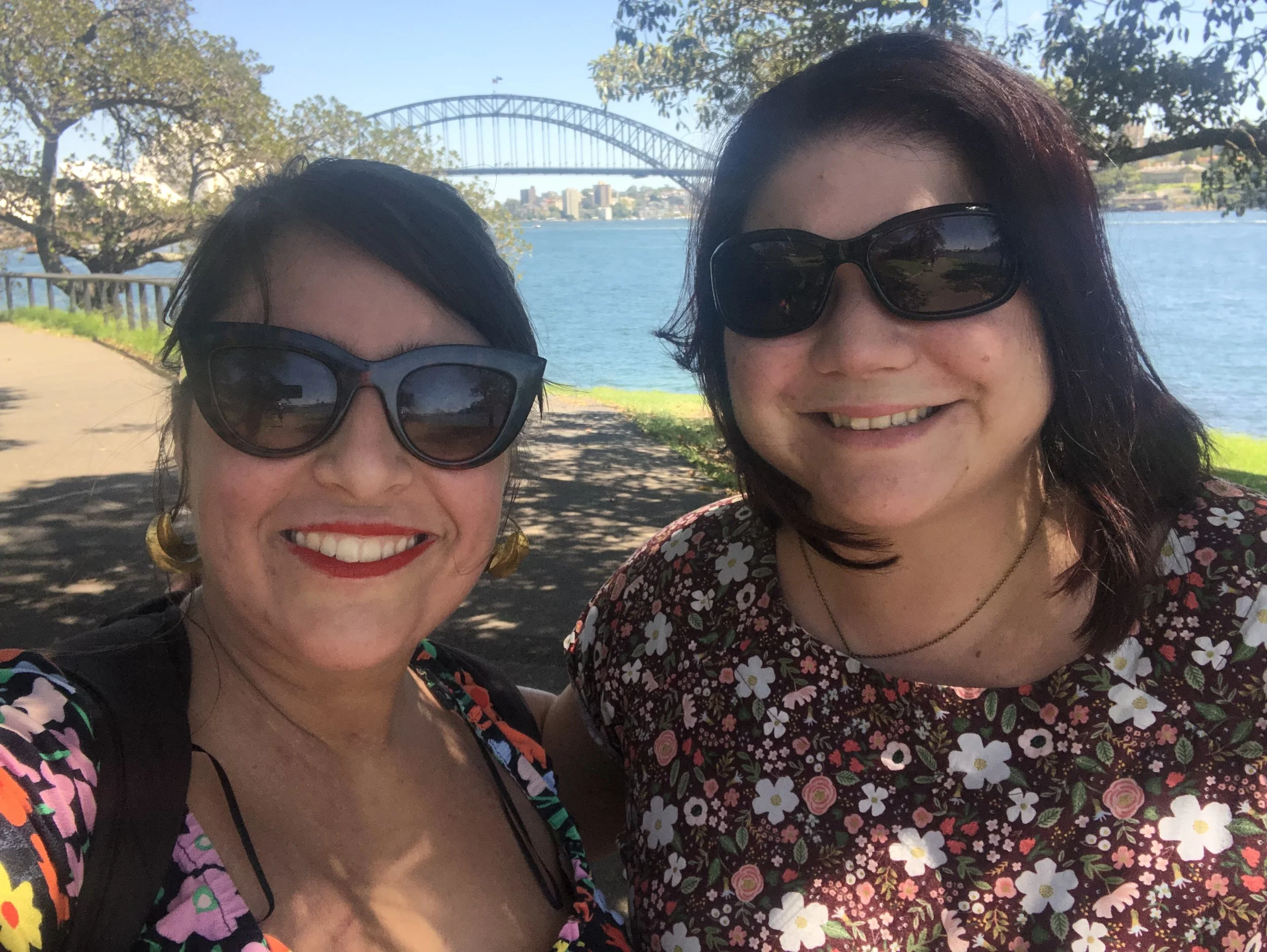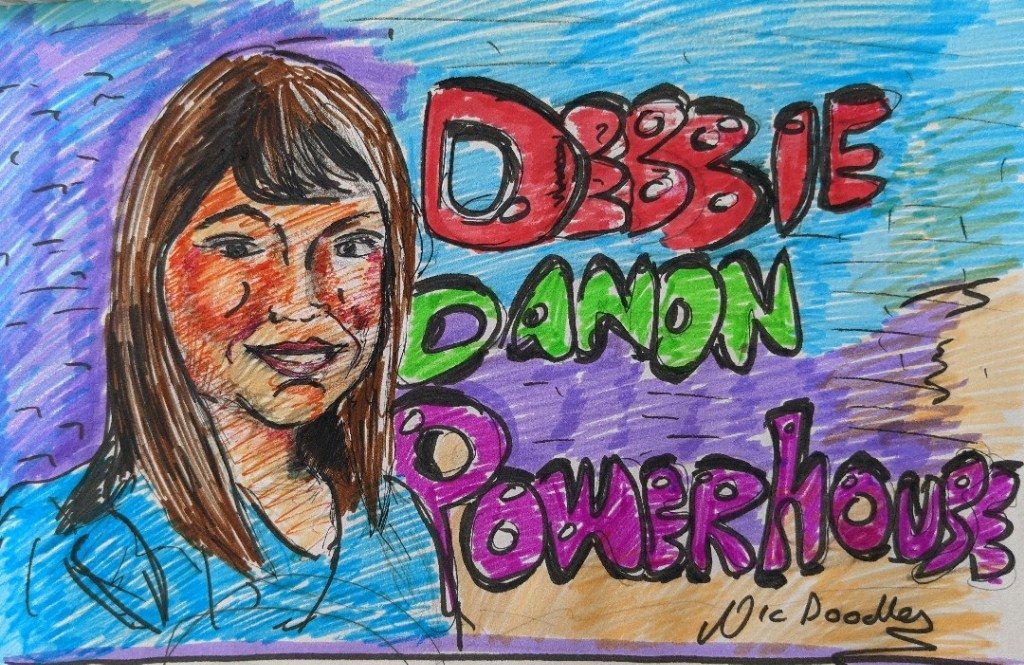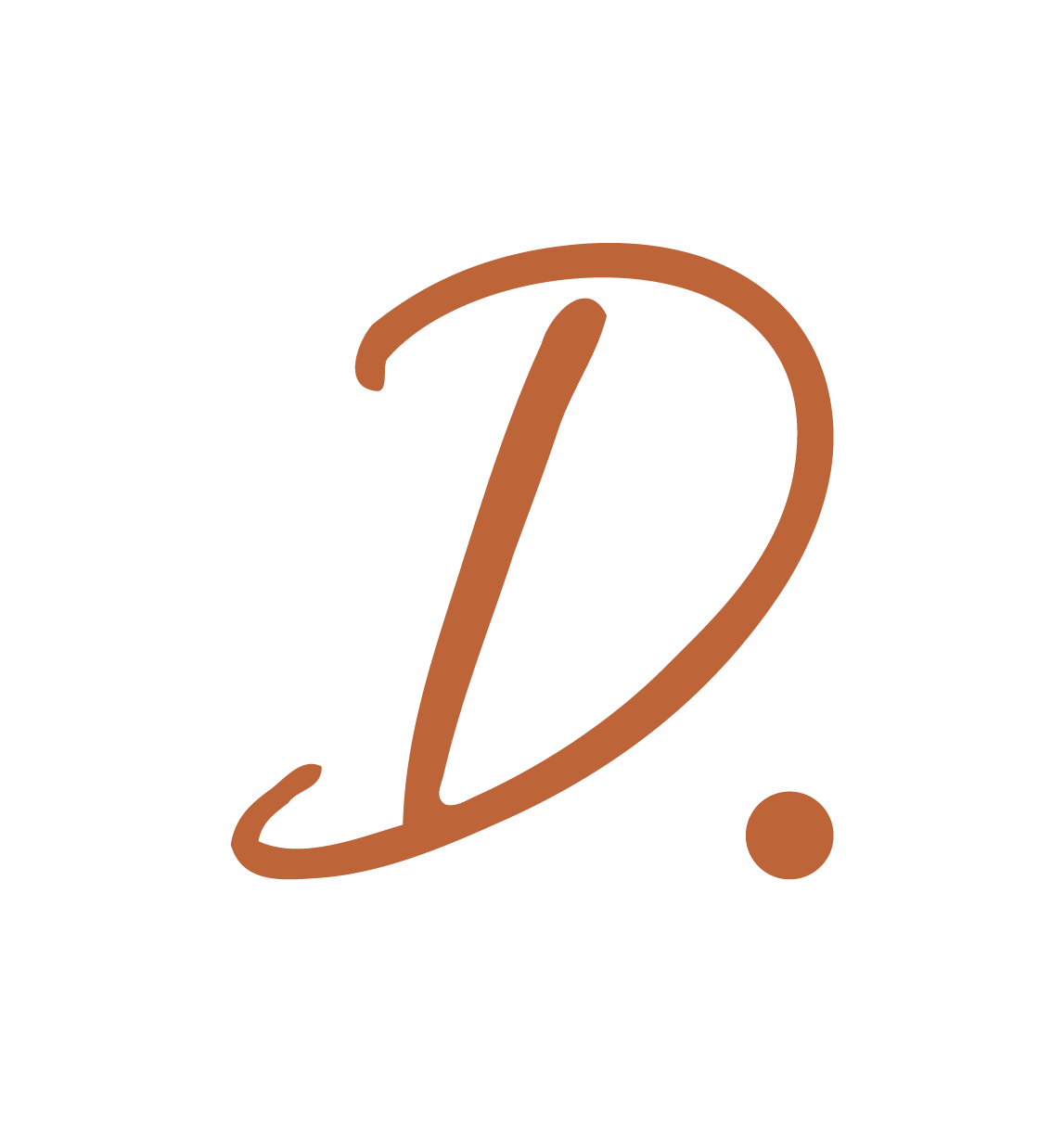Creativity, Integrity & Decoloniality: Learnings from Rebel Leaders Down Under
What change are you trying to make as a leader?
What will people say you stood for when you retire?
And what magic unfolds when you set up coffee meetings with fellow rebels without any outcome in mind?
Here’s what I learned from three women leaders in Sydney, Australia about leading the change they want to see with Authenticity, Balance and Courage…
There are some things in life you don’t want to miss.
I decided over winter break that my brother Jonathan’s civil marriage to his wonderful partner Lina in Sydney, Australia, was one of those *unmissable* things.
Sandwiched between delivering my first Resilience Masterclass for Hyphen, and my daughter Esli’s 3rd birthday, I flew to the other side of the world for just one week.
‘Debbie, that’s bonkers!’ has been a common response when I’ve told people, but I cannot tell you how worthwhile it was.
There’s nothing like being somewhere totally new to get totally inspired. And the highlight was most definitely…the people.
As well as the fabulous Future Science Talks that my brother Jon… sorry, Dr. Jonathan Danon… spoke at, I connected with three incredible women co-conspirators who each inspired me in their own way - Nicole Rose, Lizzie Crouch, and Hannah Grant-Dolev.
Here’s a little window into each of their worlds, and what I learned from each of them. At the bottom of each section, you’ll find three questions to inspire you to ‘Be More’ like each of them. I wonder what they’ll inspire for you…
Meet Nicole
Creativity isn't a gift. It's a practice. Just ask Nicole Rose. Nicole and I met on LinkedIn. We’d never met in person. Two queer British Jews, living on opposite sides of the world, connected against the odds through a business community in the US.
So imagine my surprise when I pinged Nic to say I was coming to Sydney for a week... ...And she replied saying, ‘I’m booking my flights – I’m jumping on a ✈️ to see you.’
True co-conspiratorship in action!
Nicole is truly a Rebel Leader among lawyers. A creative course designer. A facilitator of leadership and integrity. A visionary for the culture of the legal world.
We’ve all done online ethics and compliance courses that either made us chuckle at their clunkiness, or threatened to send us to sleep. Well, Nicole is challenging that 😴-worthy status quo.
To paraphrase Nic:
‘Lawyers won’t change the world, but lawyers who are excellent communicators just might. And to do that, we have to constantly flex our creativity and not get complacent...’
Among her many commitments, Nicole reimagines stale contracts as interactive courses and inspires legal training creators to build learning experiences that invite compliance from belief and growth, not from apathy or fear.
One of the things I admire most about Nicole is her deep commitment to creativity as a practice. I’m deeply inspired by how much attention she spends on removing blockers to creativity - from designing her day around generating creative flow to challenging her clients to communicate more creatively, even when they don’t believe they can. (Nic wholeheartedly believes everyone can!)
Here’s a doodle Nicole did of me, encouraging me to embrace the title of ‘Powerhouse.’ I can attest that it’s working.
REFLECTION QUESTIONS TO ‘BE MORE NIC’
1) What practices, surroundings, and times of day help you feel most creative? And what is one step you could take to prioritize these in your day/week?
2) What kinds of communication have become ‘stand and deliver’ pieces for you? Perhaps the way you ran a meeting was once fresh but is now well-rehearsed and a bit stale? How might you change up how you communicate this message/idea next time, to see if you get a different reaction?
3) Who are 3 people you really want to show up for in the coming months? How do you plan to do that? (Jumping on a plane: optional)
Meet Lizzie
What is knowledge? And how can we create spaces where types of knowledge that have been historically deprioritized – like the arts, like Indigenous knowledge, insight, and wisdom - can be rightfully recentred?
Lizzie and I met on our dear friend Karen’s hen weekend years ago and instantly clicked. I was drawn to her sincere curiosity, her enquiring mind, and her wicked sense of humour.
Lizzie is now doing a Ph.D. around a new ontology where science and art can have a healthier relationship. I hope I don’t butcher her thesis, but this is what I understood…
In collaborations at the intersection of these disciplines, science, and art have a tendency to instrumentalize each other. Art has taken scientific phenomena and methods to create new forms of the artistic outcome, OR science has used art to communicate a scientific message.
As Lizzie puts it…
‘Both spheres have traditionally been led by white voices, mostly male, and devalued other ways of knowing and being – from bits of knowledge held by those who move through the world with a disability to Indigenous, black, and brown knowledge.
'‘So how might we imagine a democratised space where science and art can each have their say, and have critical conversations about each other’s ontologies, without needing to ‘win’ or instrumentalise each other?
And what if, as part of that, body knowledge, Indigenous wisdom, lived experience, and other marginalised knowledge all had a seat at the table too? ‘
Lizzie is currently collaborating with teams to work towards bringing incredible decolonised spaces that encompass this kind of thinking and collaboration into being. This includes humbling herself as a white woman as she partners with an Indigenous community in Queensland, Australia.
Yeah. She’s amazing.
Lizzie was also 16 weeks post-op after major surgery, so we reflected together on the recovery process, temporary disability and inclusion, and how to nourish our bodies in order to flourish with our minds.
REFLECTION QUESTIONS TO ‘BE MORE LIZZIE’
1) How can I question what counts as, or is valued, as ‘knowledge’?
2) How might I commit to learning more about a lived experience I know less about e.g. Indigenous culture, disability, temporary disability?
3) What does ‘recovery’ look like for me when my body’s been through something big?
Meet Hannah
Hannah saw my post that I was coming to Sydney and DM-ed me on LinkedIn - I’m so glad she did!
Hannah and I met when we worked together briefly at my old charity Three Faiths Forum (now The Faith & Belief Forum). So it was delightfully unlikely to reconnect outside the Art Gallery New South Wales after about 15 years.
In Hannah’s LinkedIn profile, she notes that she is ‘Living and working on Bidjigal & Gadigal Land.’ An act that many Australians now take known as Acknowledging Country.
Hannah explained this is part of common practice, acknowledging the traditional custodians of the lands within the country we now call Australia, and it’s one small way of recognising the harm caused by Australia’s colonial past.
I asked Hannah about the impact of this practice, and what difference she thinks it make.
‘Despite growing up in the UK, it wasn’t until I moved to Australia that I learned about colonialism and it’s ongoing impact. Acknowledging Country is something I can do each day – in meetings, at events, as part of how I think about the land I’m working and living on.
‘Of course, you could say it becomes performative - it can’t be the only thing we do to challenge injustice. But not taking the time to Acknowledge Country is also a choice – a choice to forget or ignore. It’s not the only thing we can do – we have a responsibility to learn, to challenge the ongoing systemic inequalities experienced by First Nations peoples and to recognise that this land is home to the world’s oldest continual culture.’
Since we last spoke, Hannah has been pursuing her passion of arts-based youth work, a pioneer and advocate for 'Artistic Thinking' for change.
In 2018 she founded Collective Impact Arts, an organisation that partnered with arts, education, government, and community organisations to develop programs for creative community engagement and participatory social innovation.
Her varied work at Collective Arts has included:
- 'Transitions': a drama program designed to support newly-arrived young people still learning English to transition into mainstream school
- 'The Body Love Club': a program of live events and workshops exploring body image through creativity and writing
- Supporting teaching artists and socially-engaged artists with advocacy for fair work, building connections, and leadership development, including coordinating the Australia-Pacific Teaching Artist Network (APTAN)
She now leads DEI projects for the New South Wales Government,
What shines through when you listen to Hannah is her integrity. She has deep expertise in how artistic practice and decolonised approaches can bring about social change, AND she knows it can only be done in partnership with those most affected by social injustice.
To build these partnerships with integrity, Hannah reflects deeply on her own positionality as a white-passing woman – with a keen eye for how the dynamics of oppression can seep into partner relationships, including falling into the ‘white saviour’ mode. Hannah is doing the work every day to address these power dynamics in her own relationships, and encouraging others to do the same.
REFLECTION QUESTIONS TO ‘BE MORE HANNAH’
1) What does ‘integrity’ mean to me?
2) How might I find out more about the colonial history of the lands I live on - the good, the bad, and the ugly?
3) What is one daily action I can take, however small, to acknowledge an ongoing injustice in the world? And what might doing this daily open up for me?
Fancy a Virtual Rebel Coffee with me?
I love meeting Fellow Rebels and bouncing ideas about how to make the world more just, compassionate and sustainable. Feel free to book a call in my diary - just request a Rebel Coffee and we’ll make it happen.
Does your leadership culture need more Authenticity, Balance & Courage?
I would love to bring Rebel Leadership to your organisation, enabling you and your people to spark and sustain positive change, without burning out or causing unintended harm.
Click the button and let’s set up a chat…

